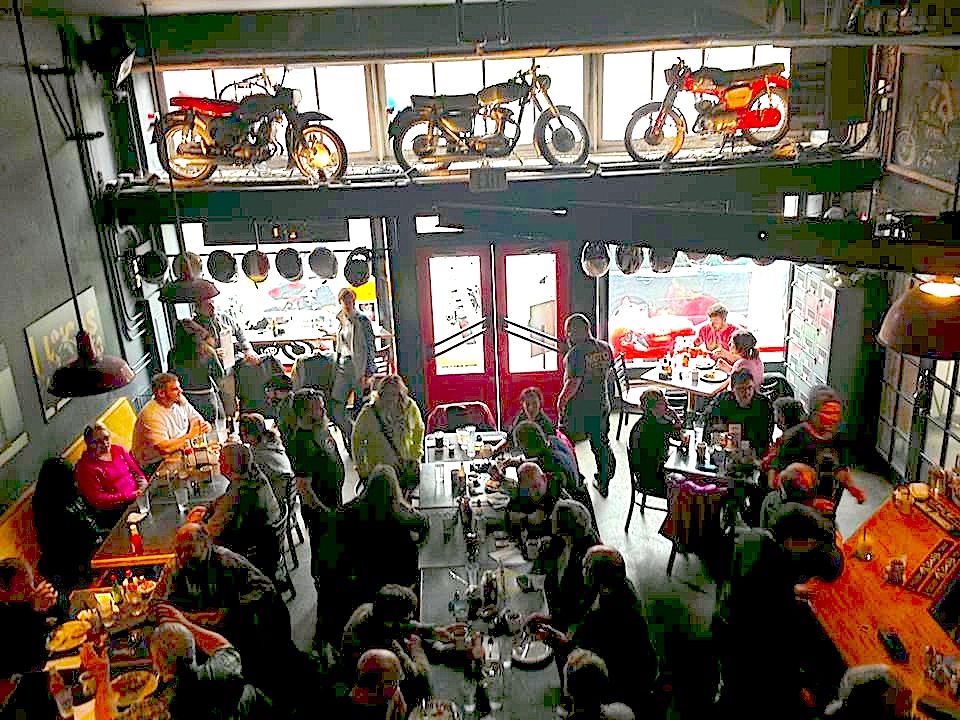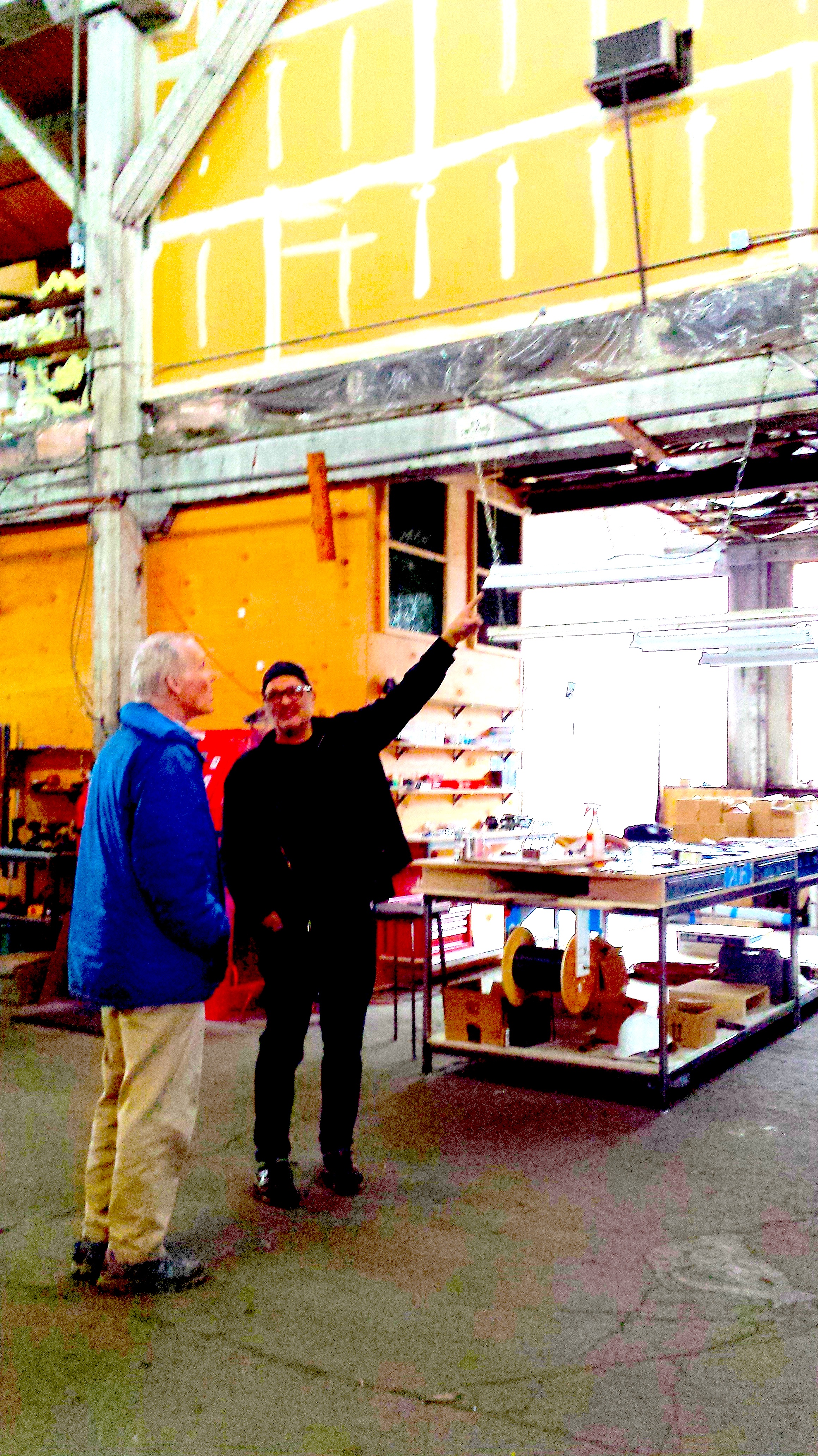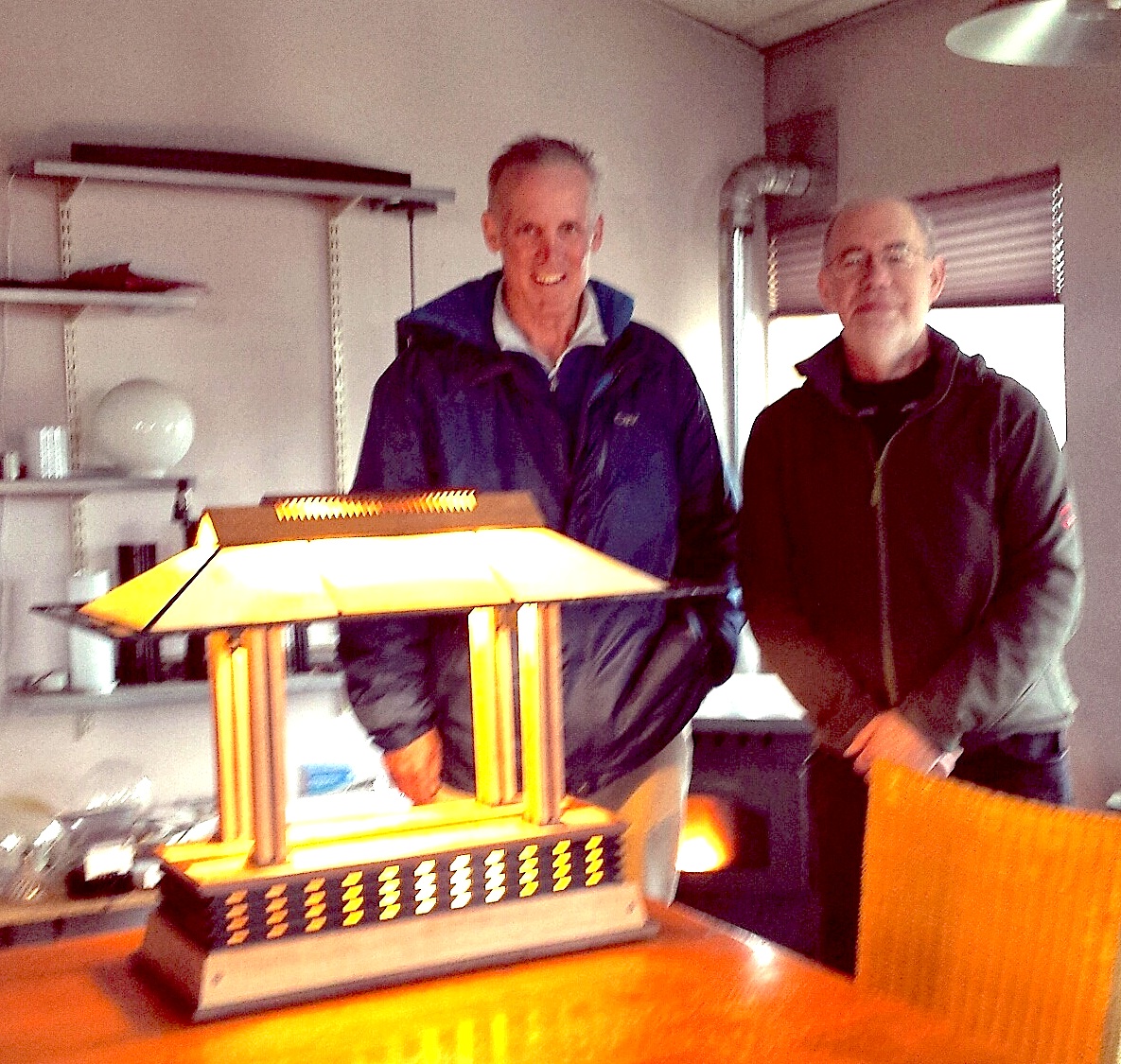Prairie Lamp Trade-off: Mission Accomplished
True to reputation, the skies over Seattle drizzled rain. We parked the Bug in the lot of a creaky old hotel named Georgetown Inn. The young desk clerk greeted us warmly and offered us use of a washing machine next to the workout room, which we desperately needed. Mostly we were interested in a comfortable bed—which is about all we got—and something to eat.
The clerk directed us to a bar called Smarty Pants where we could get sandwiches and the local brew. It was a short—albeit rainy—walk from the hotel. Georgetown is the oldest neighborhood in Seattle. Situated near the industrial sections of the city, it’s also a bit gritty. Comprised mostly of bars, breweries, and pizza parlors, there wasn’t much tourist traffic, which was fine with us.
Smarty Pants is one of the favorite nightspots for young Seattleites. It’s a biker bar tucked in among empty, crumbling brick warehouses, but because of the nasty weather, most of the patrons had come on foot, like us, dragging in dripping umbrellas.
The décor is funky with old motorcycles perched on high shelves around the dimly lit room. We hit the bar on racing night, and a large screen TV entertained us with exhilarating videos of motorcycle races where riders leaned into curves until their kneepads scraped the track. Evel Knievel would’ve loved it.
From the lengthy menu I settled on Pacific tuna salad on a freshly made bun, Harry gobbled a roast beef sub, and we both washed down the food with Washington beer that took the edge off our long day’s drive.
The beer and two-wheel races revved us up, and we found our way back to the inn by hopping over puddles and huddling together in a nippy wind.
The next day, our clothes laundered, we woke to more rain. We had arranged to meet the buyer of Harry’s Prairie lamp at a warehouse where his brother-in-law Brad operates his own lamp building business. I hadn’t seen Brad in years. He is dark like his Pilipino mother and tall with a youthful thinness. Even with his horn-rimmed glasses—maybe safety glasses—he was still handsome.
Brad and his staff fashion gigantic lamps for commercial enterprises. It was Saturday and no one was working, so he showed us a chandelier one of the craftsmen was building for a Starbucks coffee shop. It looked like a haystack of thorns, each thorn holding a small light bulb. Lit up, Brad said, each thorn would refract the light at different angles.
“Kind of like a disco ball?” I asked. He hesitated. I was afraid I had offended him.
“A very artsy disco ball,” he said.
 The warehouse, big as an airplane hangar, was built in the early 20th century before electricity was widely used. Huge windows at one end let in natural light. With a ceiling three stories above, the work area must have cost a fortune to heat. I wrapped my arms around myself for warmth.
The warehouse, big as an airplane hangar, was built in the early 20th century before electricity was widely used. Huge windows at one end let in natural light. With a ceiling three stories above, the work area must have cost a fortune to heat. I wrapped my arms around myself for warmth.
Brad had built an office upstairs heated with a pellet stove, which he got going to make us more comfortable. Harry unpacked the Prairie lamp and assembled it on the conference table. Once he had plugged it in and turned it on, I realized that I’d forgotten how magnificent a work the lamp is. Perched in the middle of the room, I walked around it and admired the workmanship from all angles.
Brad seemed impressed. “How much are you selling it for?” he asked Harry.
“Four hundred,” Harry replied.
Brad rubbed his chin and shook his head. “Might as well be giving it away.”
“It’s more about the trip than the money,” I added. Anyway, it was too late to make a price adjustment—Harry and the buyer had agreed on the price.
From upstairs we weren’t able to hear a knock on the heavy door, so I went down to keep an eye out for our lamp buyer, a doctor who worked at a cancer treatment center in Seattle. A slim, balding man wearing a ski jacket came to the door.
“Dr. Woloshin?” I asked and held out my hand. He smiled and clasped it with a firm grip.
“Please call me Paul,” he said.
I took him up to the office where the lamp glowed with a tender light. Brad had turned off the overhead fluorescents, and the cloudy Seattle day was just the right dimness to show off the lamp’s beauty.
“It’s stunning,” Paul said.
The four of us stood around Harry’s creation and chatted. Paul had been to many of the places we’d just driven through—the Presidio in San Francisco and Mount Shasta, where he had recently hiked. When we ran out of conversation, Paul gave Harry four hundred-dollar bills. There was nothing left to do but pack up the lamp for its new owner.
When we took the box out to the van, thankfully the rain had let up. Paul was driving a rental van because his car had been damaged in an accident—a stroke of luck for us because Harry could slip the box into the back without taking the lamp apart.
“Do you have other lamps?” Paul asked.
“Yes, I do,” Harry said.
“But if you want one, you’ll have to come to Vermont to pick it up,” I quickly put in.
Paul smiled, perhaps considering a road trip of his own.
Harry gave him a business card before we said a bitter-sweet goodbye. We had done what we set out to do, but there was an empty space in the back of the Bug. The Prairie lamp had been a quiet and agreeable traveling companion. We had lugged it in and out of apartments, left it alone while we went sightseeing and ate meals, and hauled it over high mountain passes. We had crowded it with clothes, camping gear, and the case of wine we’d purchased in Oregon, and never once did the lamp register a complaint or make a demand on us.
In some ways it was a relief not to worry about the stained glass shade and the sanded hardwood getting damaged. On the other hand, I felt as if we’d sent our child off to college. We just hoped that Dr. Woloshin knew enough to take good care of him.